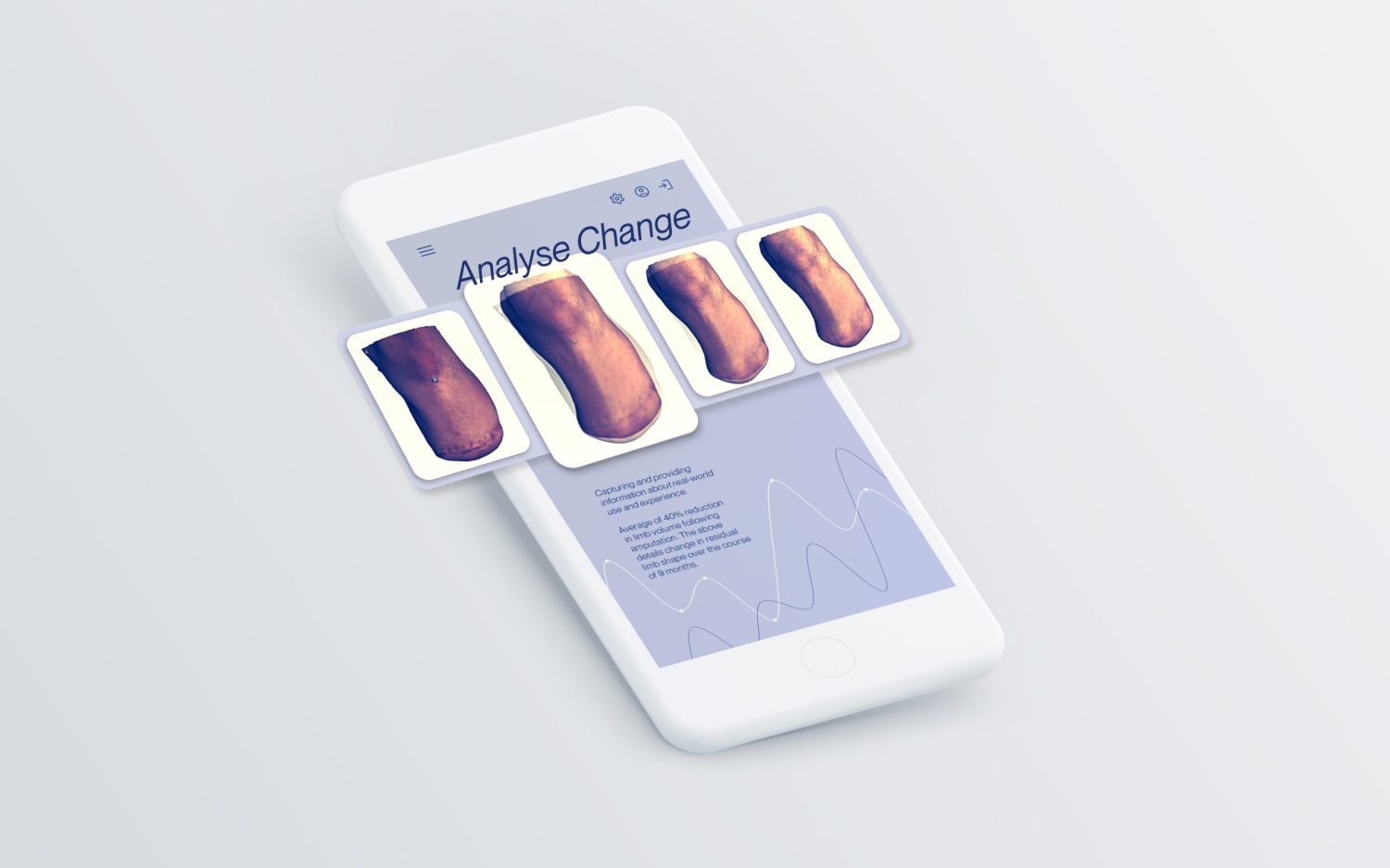SEARCH
Enter your search term below:
Close
Enter your search term below:

WORLD LEADING BUSINESS SUPPORT

Prosthetic limb technology has advanced significantly in recent years, with veterans playing a crucial role in pushing the boundaries of these devices. However, all users still need a well-fitting socket to fully benefit from these advancements and achieve their daily goals. This project aims to enhance the fit of sockets for individuals using a lower limb prosthetic by developing tools to facilitate communication about their daily experiences and during clinical visits.
To address this, the project team will collaborate closely with a group of prosthetic users to create an easy-to-use digital app. Users can report on their limb fit throughout the day and link these experiences to their daily activities. This information, along with visualisations of residual limb shape changes, will help inform the clinical fitting process towards an improved experience of socket fit.
Alongside Radii Devices who will develop data-driven software to improve the fit of medical devices, the project team is made up of Blesma, who will ensure user’s voice is at the centre of this research, Portsmouth Enablement Centre, Universities of Bath and Southampton, and CareIQ, who will support NHS integration.
The Scale-Up Programme provided three days of bid support to help the team at Radii get the bid into the best shape possible to secure the funds.
Radii Devices develops innovative technology to improve the fit of medical devices that connect with the skin, such as prosthetics, orthotics, and wheelchairs. The technology pulls together evidence based on clinical practice, engineering data, and 3D scans and wraps it into software which aims to support the clinician in device design for the best patient outcome.
The Veterans Health Innovation Fund was launched by the Office for Veterans Affairs in collaboration with the Defence and Security Accelerator (DASA) to fund projects harnessing cutting-edge technology, innovation and research which have the potential to help the physical and mental health of veterans and in the future contribute to mainstream and improved treatments by the NHS.
Joshua Steer, founder of Radii Devices said: “We’re delighted to have won this significant funding pot from the Veterans Health Innovation Fund. Those who have been injured in the service of their country deserve the best of UK science and technology at the forefront of their health and care. We’re very proud to be part of this. There are a high number of veterans with amputation in the UK, and our work will support the clinical fitting of their prosthetic limbs.”
The project includes collaboration with academics at the University of Southampton (Dr Alex Dickinson and Dr Maggie Donovan-Hall) and the University of Bath (Dr Elena Seminati), who will help understand the user requirements for the app, and how to integrate a variety of data including 3D scans of the residual limb.”
Dr Alex Dickinson, University of Southampton said: “The comfort of a person’s prosthetic limb can vary greatly, so reporting back to their prosthetist at appointments, often months apart, cannot give the full picture of their experience. Our plan is to create a more dynamic way for people to record information like their activity and comfort, beside a digital twin of their limb, to improve communication with their clinician by telling their whole story”.
With its technology strongly rooted at the University of Southampton, the team at Radii has benefitted from support both from the University and SETsquared. From working with the student enterprise team and pitching at SETsquared’s GradInvest, to becoming a SETsquared Bristol member and attending the Health Innovation Programme, the business is now a rising star of the Scale-Up programme.
The Veterans Health Innovation Fund has awarded £5m in funding to 22 projects.
Get all the fresh insights first! Stay up-to-date with all the
latest investment news, blogs and all things SETsquared.
Close
Close